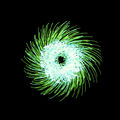Template:Selected anniversaries/December 18: Difference between revisions
No edit summary |
No edit summary |
||
| Line 2: | Line 2: | ||
File:Christopher Polhem painted by Johan Henrik Scheffel 1741.jpg|link=Christopher Polhem (nonfiction)|1661: Scientist, inventor, and industrialist [[Christopher Polhem (nonfiction)|Christopher Polhem]] born. He will make significant contributions to the economic and industrial development of Sweden, particularly mining. | File:Christopher Polhem painted by Johan Henrik Scheffel 1741.jpg|link=Christopher Polhem (nonfiction)|1661: Scientist, inventor, and industrialist [[Christopher Polhem (nonfiction)|Christopher Polhem]] born. He will make significant contributions to the economic and industrial development of Sweden, particularly mining. | ||
||1737: Antonio Stradivari dies ... instrument maker. | ||1737: Antonio Stradivari dies ... instrument maker. No DOB. Pic. | ||
||1787: Jan Evangelista Purkyně born ... anatomist and physiologist. In 1839, he coined the term 'protoplasm' for the fluid substance of a cell. He was one of the best known scientists of his time. Pic. | ||1787: Jan Evangelista Purkyně born ... anatomist and physiologist. In 1839, he coined the term 'protoplasm' for the fluid substance of a cell. He was one of the best known scientists of his time. Pic. | ||
||1793: Surrender of the frigate La Lutine by French Royalists to Lord Samuel Hood; renamed HMS Lutine, she later becomes a famous treasure wreck. | ||1793: Surrender of the frigate ''La Lutine'' by French Royalists to Lord Samuel Hood; renamed HMS Lutine, she later becomes a famous treasure wreck. Pic (kinda). | ||
||1848: Bernard Bolzano dies ... mathematician, logician, philosopher, theologian and Catholic priest | ||1848: Bernard Bolzano dies ... mathematician, logician, philosopher, theologian and Catholic priest ... known for his antimilitarist views. Pic. | ||
File:Jean-Étienne Montucla.jpg|link=Jean-Étienne Montucla (nonfiction)|1799: Mathematician and theorist [[Jean-Étienne Montucla (nonfiction)|Jean-Étienne Montucla]] dies. His deep interest in history of mathematics became apparent with his publication of ''Histoire des Mathématiques'', the first part appearing in 1758. | File:Jean-Étienne Montucla.jpg|link=Jean-Étienne Montucla (nonfiction)|1799: Mathematician and theorist [[Jean-Étienne Montucla (nonfiction)|Jean-Étienne Montucla]] dies. His deep interest in history of mathematics became apparent with his publication of ''Histoire des Mathématiques'', the first part appearing in 1758. | ||
| Line 62: | Line 62: | ||
File:Konrad Zuse (1992).jpg|link=Konrad Zuse (nonfiction)|1995: Engineer, inventor, and pioneering computer scientist [[Konrad Zuse (nonfiction)|Konrad Zuse]] dies. He invent the Z3, the world's first working programmable, fully automatic computer. | File:Konrad Zuse (1992).jpg|link=Konrad Zuse (nonfiction)|1995: Engineer, inventor, and pioneering computer scientist [[Konrad Zuse (nonfiction)|Konrad Zuse]] dies. He invent the Z3, the world's first working programmable, fully automatic computer. | ||
||1996: Yulii | ||1996: Yulii Khariton dies ... physicist and academic ... leading scientist in the Soviet Union's nuclear weapons program. Since the initiation of the atomic bomb project by Joseph Stalin in 1943, Khariton was the "chief Nuclear weapon designer" and remained associated with the Soviet program for nearly four decades. Pic. | ||
||1998: Edwin Evariste Moise dies ... mathematician and mathematics education reformer. Pic. | ||1998: Edwin Evariste Moise dies ... mathematician and mathematics education reformer. Pic. | ||
Revision as of 11:17, 26 February 2019
1661: Scientist, inventor, and industrialist Christopher Polhem born. He will make significant contributions to the economic and industrial development of Sweden, particularly mining.
1799: Mathematician and theorist Jean-Étienne Montucla dies. His deep interest in history of mathematics became apparent with his publication of Histoire des Mathématiques, the first part appearing in 1758.
1856: Physicist and academic J. J. Thomson born. His research in cathode rays will lead to the discovery of the electron. Thomson will also discover the first evidence for isotopes of a stable element.
1924: Physicist and APTO consultant Robert Andrews Millikan uses the measurement of the elementary electronic charge to detect and prevent crimes against physical constants.
1956: U.S. President Dwight D. Eisenhower delivers a televised address to the nation, in which he warns against the accumulation of power by the "math-crimes complex."
1958: Project SCORE, the world's first communications satellite, is launched.
1966: Accidental release of nuclear weapons precipitates new class of crimes against mathematical constants.
1995: Physicist Nathan Rosen dies. He developed the idea of the Einstein–Rosen bridge, later named the wormhole.
1995: Engineer, inventor, and pioneering computer scientist Konrad Zuse dies. He invent the Z3, the world's first working programmable, fully automatic computer.
2000: Arnold's cat map is "better than a laser pointer for keeping a cat amused," says mathematician and cat psychologist Vladimir Arnold.
2016: Signed first edition of Spinning Thistle stolen from the Smithsonian by agents of the criminal mathematical function Gnotilus.










